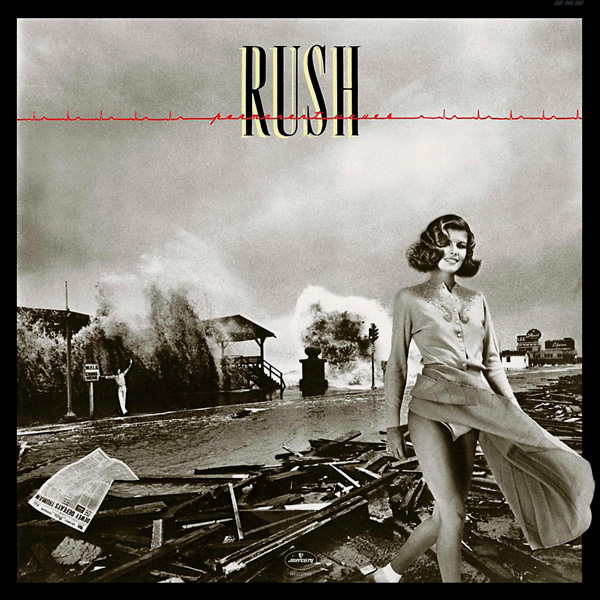Rush Won't Rush Into Style Fads Of Moment
By Cary Darling, Billboard, March 1, 1980, transcribed by pwrwindows

LOS ANGELES - Power rock trios to some may seem outdated. However, that can't be said about Mercury's Rush which is now enjoying its first top 10 LP, "Permanent Waves." Songwriter-drummer Neil Peart takes pride in the fact that his hard rock band doesn't change with every trend that comes along.
"Influence is one thing." starts Peart, "but to apply artificial limits on music is dishonest. We try not to be influenced by external limitations. One of our songs may be five minutes or 12 minutes. It's all relative to the piece." Basically, the sound has not changed markedly since the band's inception in 1973. With bassist-vocalist Geddy Lee and guitarist Alex Lifeson, the trio plays hard rock with overtly classical and jazz undertones. The latest effort has no central concept unlike most of its other albums such as "2112" and " Hemispheres." Also, the individual tracks are shorter this time out but this may not be a permanent situation.
"One LP can't define a trend," Peart notes. "'Hemispheres' was a big idea. In this case, most ideas were on a smaller scale. It wasn't a bid to be more commercial." One strain that runs through all of Rush's work is the libertarian objectivist philosophies of Ayn Rand. With such songs as "Free Will" and "Natural Science" on the new LP, the group still holds to these thoughts.
However, the band plans not to get involved in any political fundraising for the Libertarian Party or anyone else. "I don't consider myself political," says Peart. "I don't think I have enough understanding of that yet. I'm more interested in theory than practice."
Outside of its philosophical stand, which not many pop artists advocate, Rush is noteworthy for having a drummer who writes most of the lyrics. "When I first joined six years ago, the other two guys weren't that keen on writing so I got it by default," he explains. "Geddy usually comes up with a song or two and Geddy and Alex put together melodies and music. It balances itself out."
Though the songs are complex musically, Rush has no plans to expand beyond a trio. "At one time we were thinking of expanding but instead we expanded the instrumental capabilities of everyone.
"We get along so well together and we wanted to keep it the same way. Now we have enough flexibility and we've taken the limitations out of ourselves," he comments.
Lee, for example, now doubles on keyboards and Lifeson plays a number of different types of electric and acoustic guitars.
While other bands have been forced to play smaller halls recently, Rush for the last three years has been moving up to bigger halls with each tour. It doesn't feel it loses its edge in a larger setting.
"We were fooled with big halls as an opening act because we didn't have our own equipment and the sound was awful." Peart notes. "People say you get better sound in a smaller place but that's not necessarily true. Some big halls have excellent sound. However, if you get too much above 10,000 seats, it gets pretty faceless."